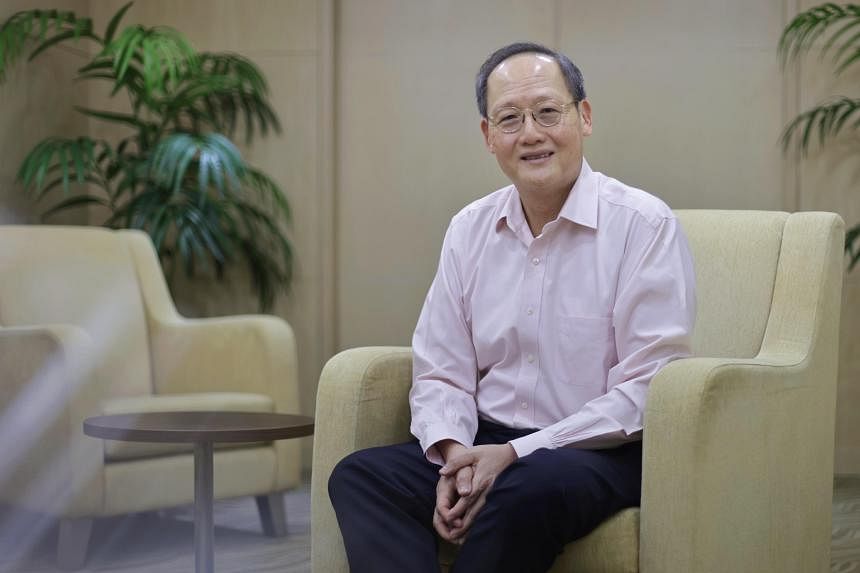SINGAPORE – Much of the upcoming temporary financial support for retrenched workers will be tied to training and career counselling and guidance, said Manpower Minister Tan See Leng on Wednesday.
Hinting at the criteria in an interview with The Straits Times, Dr Tan said that more details of this new scheme will be revealed after the Forward Singapore public consultation wraps up in 2023.
The Government was prompted to move on introducing this “re-employment support” for retrenched workers due to factors ranging from the Covid-19 crisis to geopolitical tensions to the transition to new leaders, he added.
Various groups have been calling for some form of unemployment insurance for years, but ministers have voiced the view that generous benefits risk making it more attractive to stay unemployed than to find a new job.
Dr Tan said that the accelerating pace of transformation has already led to initiatives to help workers keep pace, such as identifying areas in each major industry where jobs and skills needs are changing, as well as launching training programmes.
Providing additional support for workers who are involuntarily unemployed is timely, given the pandemic, supply chain disruptions, geopolitical tensions and the fact that Singapore is also ageing very rapidly, he noted.
Dr Tan said that taken together with the plans to transition to the 4G leadership under Deputy Prime Minister Lawrence Wong, “this is as good a time as any to embark on many of these changes”.
Prime Minister Lee Hsien Loong announced two major moves to help local workers during his National Day Rally speech on Sunday.
Besides the scheme for retrenched workers, there is also the Majulah Package for lower- and middle-income Singaporeans born in 1973 or earlier. They will receive various top-ups to their Central Provident Fund (CPF) accounts to help them in retirement.
Dr Tan noted that targeted support for retrenched workers should not be seen as unemployment insurance, but rather as a way to give displaced workers time to identify industry trends as well as the ability and freedom to choose a next job that is a good fit for them.
“You shouldn’t think of it as unemployment insurance but more of re-employment support: to nudge you in a right way, for you to also refocus, for you to also repurpose, and at the same time, for you to not settle (for) anything that comes along the way,” he said.
He added that workers will also get help maintaining their “career health”, for instance through personalised jobs and skills recommendations on the national jobs portal MyCareersFuture.
Dr Tan said the backbone of the Majulah Package is the Earn and Save Bonus.
This is an annual top-up of between $400 and $1,000 as long as a senior person remains in the workforce, whether full-time or part-time.
The bonus – plus accumulated interest over time – aims to help a senior person who does not yet meet their CPF Basic Retirement Sum (BRS) to close the gap faster.
Dr Tan said the Government will find ways and means to help workers reach their BRS.
He said: “If you want to retire early, if you have the option to retire early, we’re not telling you (that) you should not retire.
“But the key thing is to empower you... with the option that should you want to continue working because of your experiential wisdom, we want to be there to support you.
“What we want to do is to put a positive momentum to it, and that is because we are going to become a ‘super-aged’ society.”
This refers to a United Nations classification on the proportion of seniors in a country’s population.

Dr Tan noted that the Majulah Package will be accompanied by improvements to the Workfare Income Supplement Scheme, Silver Support Scheme and the Matched Retirement Savings Scheme, which are slated to be set out by the time of the debate on his ministry’s budget in 2024.
When asked if tying the Earn and Save Bonus to continued employment could lead to workers benefiting disproportionately more than those who wish to work but cannot, such as caregivers, Dr Tan said the “whole idea” of the bonus is to be a positive nudge for workers to continue working.
He added that the bonus will work in tandem with moves by the partnership between the Government, employers and labour movement to expand the options for flexible work arrangements available to caregivers so that more can rejoin the workforce.
Regardless of their employment status, seniors whose CPF balances have not reached the BRS can still receive a one-time Retirement Savings Bonus of between $1,000 and $1,500 through the Majulah Package.
The package’s third component is a one-off MediSave Bonus of between $500 and $1,000 to offset healthcare costs.
Dr Tan said the maximum payout is expected to cover four to five years’ worth of MediSave withdrawals for chronic diseases for Singaporeans in need.
He also noted that there is no hard and fast rule to discourage people from working beyond a certain age.
This comes as the retirement age will be raised from 63 to 65 by 2030 while the re-employment age will go from 68 to 70.
Dr Tan noted that average life expectancy here is about 83 years and he, a medical professional, knows all too well that health tends to decline towards the last seven years of a person’s life, meaning an individual could likely expect to stay relatively healthy until about 75.
“Even when we extend the re-employment age to 70, there are still five years before you enter the season of life where you are likely to be hit by ill health or disability,” he said.
He added: “I don’t think it’s a tough ask.”

